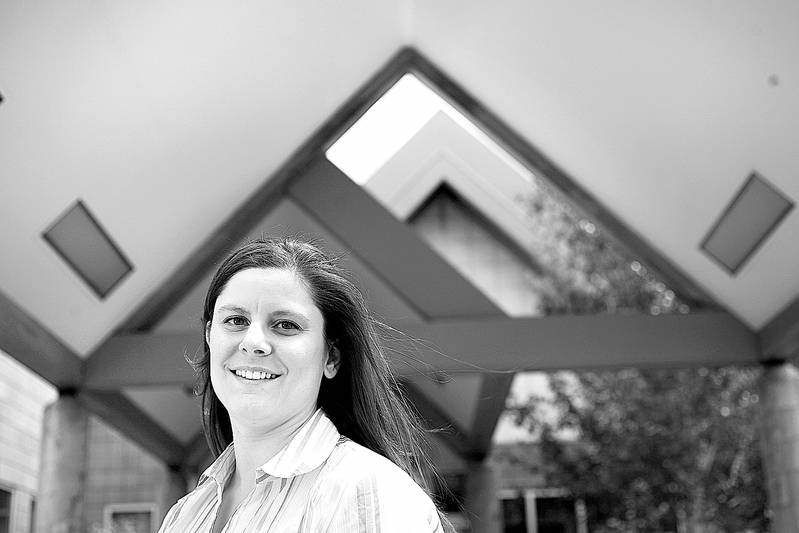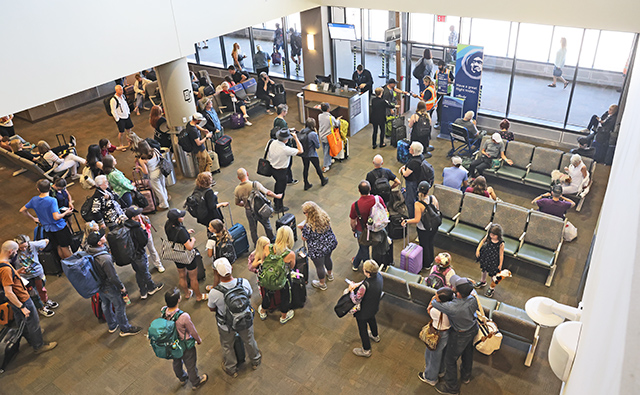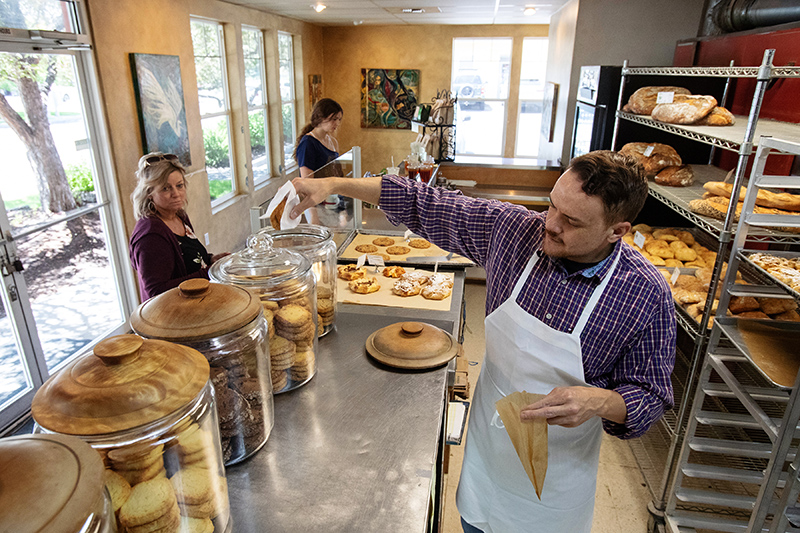COCC in Redmond saving students drive time
Published 5:00 am Monday, June 25, 2007

- Central Oregon Community Coolege’s Redmond campus has expanded its course offerings and Kristan Ludwig, who is working on her bachelor’s degree in psychology, is one of the people who benefited from that expansion.
REDMOND — Kristan Ludwig was tired of the constant commuting from Redmond to Bend for class. So when Ludwig discovered that she could complete one of the math courses she needed for her psychology degree in the computer lab at Central Oregon Community College in Redmond, she jumped at the chance.
“I knew I could go to the computer lab in Redmond and still get the support that I needed,” Ludwig said. “I’m trying not to have to drive to Bend — I’m going almost every day as it is.”
The 35-year-old mother, who is in a dual-enrollment program through Central Oregon Community College and the University of Oregon, is one of many students from Redmond and the surrounding areas, like Prineville and Madras, who now have more choices with the Redmond campus’ expanded course offerings and services.
The campus has doubled the number of transfer credit classes that they offer, and now a student at the Redmond campus can complete an associate of arts degree that is transferable to a four-year college or university without ever traveling to Bend. What’s more, high school students can now take college-level classes for credit while still attending high school.
“It took off a lot of stress on how much time I had to spend traveling,” Ludwig said. “I always had to coordinate with (my 13-year-old’s) schedule at school, because I wanted to be here when he gets home.”
“Only having to drive five to 10 minutes instead of 30 to 45 minutes — it was really nice to have more time at home,” she said.
That time saved was exactly what administrators at the Redmond campus were trying to do.
“The Redmond area is growing, as are the areas we serve from here, like Prineville and Madras, and their surrounding areas are growing as well,” Carol Moorehead, dean of Continuing Education and Extended Learning at COCC, said. “We’ve always intended to grow this campus and provide additional services and classes, and now seemed like an appropriate time.”
For 18-year-old Jennifer Coleman, being able to finish high school and start college courses at the same time was a unique opportunity. Coleman, who hopes to someday open a hair salon, attended Edwin Brown High School in Redmond and took a full load of high school courses throughout her senior year. But she also took an introductory business class on Mondays and Wednesdays at COCC-Redmond.
Attending the business course while still in high school gave her a preview of college, and it also gave her a head start.
“The business class was really fun to me because we worked in groups, and I love working with people,” Coleman said. “It helped me a lot to kind of work my way up to that point that I wanted. I’m going to be going back this fall.”
Now that she’s graduated from high school, Coleman will be able to complete her associate’s degree in Redmond instead of racking up mileage traveling to Bend to take a full course load.
“We’ve had a campus here now for a number of years, but our course work has been limited,” Moorehead said. “We know by looking at enrollment overall that there are a number of students from the northern district who are traveling to Bend. So we know that the price of gas and the time it takes to travel, it takes away from their other family obligations or their work obligations.”
In addition to the increased course offerings, the Redmond campus is now providing financial and academic advising and a stocked computer lab.
“We have people who weren’t aware of how (many) services we have been providing, and they just weren’t aware of how much we are doing here in the way of student services,” Moorehead said. “They’re thrilled to see that they can do it here.”
The college’s desire to grow was helped along by the fact that the Oregon Legislature this year provided an unexpected $510 million to fund community colleges.
Ludwig has big plans. After she finishes her psychology degree, she’d like to earn a doctorate in clinical forensic psychology and start a facility for behavioral and mental health therapy for children between ages 5 and 13 with her stepmother, a Redmond-area counselor.
In order to reach that goal, Ludwig, like many other students, will still have to travel to Bend for specialized courses.
“With a lot of those specialized professional and technical courses, it would be cost prohibitive to duplicate those at both campuses,” Moorehead said. “At this point we are limited in our science classes because we don’t have a full science lab.”
While nursing and other technical courses will remain exclusively on the Bend campus, administrators in Redmond are trying to create opportunities for students with hospitals in the more rural areas.
Ludwig understands the challenge of providing advanced science courses without a full lab, but she hopes that COCC-Redmond will continue to expand its offerings. Still, she was pleased to be able to use the Redmond campus for part of her schooling.
“I’d definitely like to see a full-service campus, where they’d offer just as many classes over here as they do over there,” she said. “There are a lot of Redmond residents that go to the school (in Bend) and commute, and it’s a good 20-mile drive one way. It was nice to save on time and gas.”






